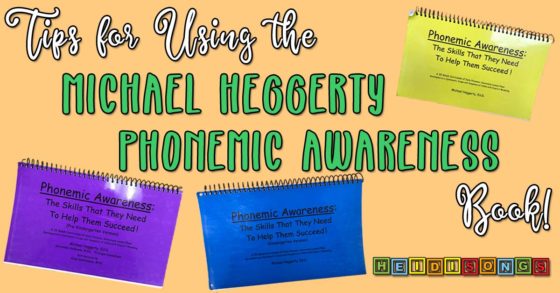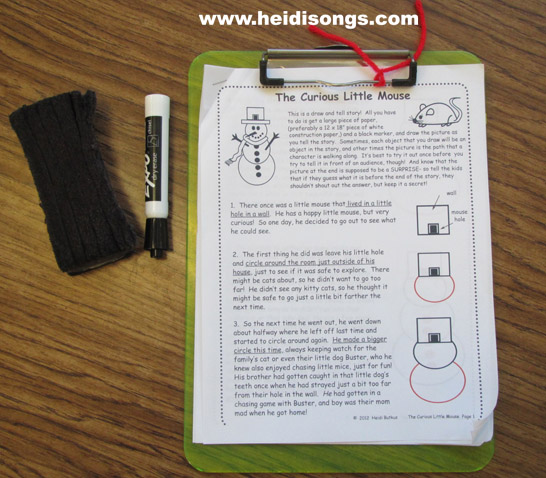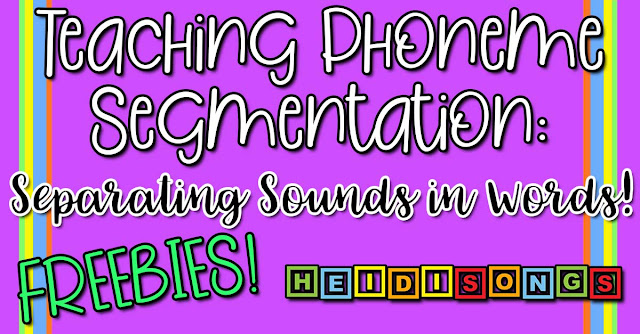What is the best way to use "Sing and Spell"?
Have you heard the news? We've Moved to HeidiSongs.tv!
Our new website features an online video streaming service, updated blog posts at Heidisongs.blog, and a wealth of fresh resources designed to make learning even more fun and engaging.
You can also continue shopping for our educational products there and at our Teachers Pay Teachers store!
Head over to HeidiSongs.tv now and explore all the exciting new features.
See you there!
__________________________________________________________________________
Using Sing and Spell CDs and DVDs in the classroom is a great way to keep your students engaged and actively learning. The purpose of sight word songs is to help the child focus on the letters in the word, and repeat the word and its spelling, in a fun and engaging way. The purpose of the accompanying melodies and movements is to take full advantage of the fact that young children learn quite naturally through movement, rhythm, rhyme, and song. When we add in the visual component of the word on the screen (as in the DVD) or on a flashcard (as in a teacher’s or parent's hand), then we have combined all of the major learning styles into one quick and efficient lesson, including the kinesthetic, visual, and auditory modalities. This is the essence of simultaneous multi-sensory teaching: all of the senses/learning styles are used simultaneously to maximize learning. Here are some practical ways for you to utilize the Heidisongs Sing and Spell CDs or DVDs in your classroom!
1. To maximize results, introduce just one or two songs a week for Kindergarten. You can increase the number of songs introduced per week for older children.
2. Practice getting your children to calm down when you are done singing. Demonstrate the behavior you expect, and practice it with the children before you begin.
3. Always include hand motions of some kind. This keeps the children motivated and engaged. You can change the motions as much as you like to make it “your own”. Many people find it easiest to bring the DVD into the classroom and have the students and teacher learn the motions together. Once the class has a handle on the movements, you can switch to a more convenient method, like an ipod or a CD player. Also, you might try to download the written description of the motions from the website. Sometimes knowing "why" I do certain things helps folks remember. You can always make up your own motions, and that's great, too!
4. Always show the word when you introduce a song. Have the children spell it aloud with you as you point to the letters.
5. Once the children know the songs, have them sit and write the words as you sing them. I use individual white boards. We put on a song, and everyone sings as they write. Check for mistakes and have the children rewrite the word correctly. Sometimes the children just parrot back the sounds that they think they hear, and they don’t really know what they are saying. If so, then sing the song slowly with the children, pointing to the letters as you go.
6. Use the songs as a classroom management tool. If your students are getting restless, have them stand and sing a song with movements. They can get their wiggles out AND learn at the same time. Also, have your students sing as they wait for their classmates to put things away or finish up their work. This is a good way to fill up those extra minutes that seem “unteachable.”
7. Demonstrate how to write sentences, using the songs as a spelling tool. Explicitly teach what the songs can be used for.
8. Practicing writing the words in the context of how they are used is more effective than simply writing the same word over and over. If you do assign your students to write a word several times each, remind them to sing the spellings in their heads as they go. There are worksheets that go along with the songs in our Sing & Spell workbooks. These worksheets are like a “cloze” activity. Each time you come to the target word in the song, there is a space so the child can write the word in him or herself.
9. Use a word wall. Some kids can repeat the spellings but not visualize the word. Have them sing the song aloud, and then find the word on the wall to copy it.
10. Let the children practice reading the words as often as possible. My students enjoyed reading little song books that I made up for them.
11. As far as the order of songs is concerned, you will probably need to skip around on the CD and DVD quite a bit, since everyone seems to teach these words in a different order. Using an ipod can be very helpful in the classroom, since you can make a playlist of songs and put them in any order you want, and change the playlist as often as you want.
Click here to view ALL SIX Sing and Spell Volumes!
----------------------------------
Follow me! Did you enjoy this post? Do me a favor and share it with your friends! And follow this blog by signing up for my email updates, or follow on Bloglovin', or follow me on TPT! I'm also on Pinterest, Facebook, Twitter, Instagram, Google+ and YouTube, too! Don't forget to sign up for our email newsletter (at the bottom of this page) for special deals and promo codes that you won't find out about anywhere else.
1. To maximize results, introduce just one or two songs a week for Kindergarten. You can increase the number of songs introduced per week for older children.
2. Practice getting your children to calm down when you are done singing. Demonstrate the behavior you expect, and practice it with the children before you begin.
3. Always include hand motions of some kind. This keeps the children motivated and engaged. You can change the motions as much as you like to make it “your own”. Many people find it easiest to bring the DVD into the classroom and have the students and teacher learn the motions together. Once the class has a handle on the movements, you can switch to a more convenient method, like an ipod or a CD player. Also, you might try to download the written description of the motions from the website. Sometimes knowing "why" I do certain things helps folks remember. You can always make up your own motions, and that's great, too!
4. Always show the word when you introduce a song. Have the children spell it aloud with you as you point to the letters.
5. Once the children know the songs, have them sit and write the words as you sing them. I use individual white boards. We put on a song, and everyone sings as they write. Check for mistakes and have the children rewrite the word correctly. Sometimes the children just parrot back the sounds that they think they hear, and they don’t really know what they are saying. If so, then sing the song slowly with the children, pointing to the letters as you go.
6. Use the songs as a classroom management tool. If your students are getting restless, have them stand and sing a song with movements. They can get their wiggles out AND learn at the same time. Also, have your students sing as they wait for their classmates to put things away or finish up their work. This is a good way to fill up those extra minutes that seem “unteachable.”
7. Demonstrate how to write sentences, using the songs as a spelling tool. Explicitly teach what the songs can be used for.
8. Practicing writing the words in the context of how they are used is more effective than simply writing the same word over and over. If you do assign your students to write a word several times each, remind them to sing the spellings in their heads as they go. There are worksheets that go along with the songs in our Sing & Spell workbooks. These worksheets are like a “cloze” activity. Each time you come to the target word in the song, there is a space so the child can write the word in him or herself.
9. Use a word wall. Some kids can repeat the spellings but not visualize the word. Have them sing the song aloud, and then find the word on the wall to copy it.
10. Let the children practice reading the words as often as possible. My students enjoyed reading little song books that I made up for them.
11. As far as the order of songs is concerned, you will probably need to skip around on the CD and DVD quite a bit, since everyone seems to teach these words in a different order. Using an ipod can be very helpful in the classroom, since you can make a playlist of songs and put them in any order you want, and change the playlist as often as you want.
Click here to view ALL SIX Sing and Spell Volumes!
----------------------------------
Follow me! Did you enjoy this post? Do me a favor and share it with your friends! And follow this blog by signing up for my email updates, or follow on Bloglovin', or follow me on TPT! I'm also on Pinterest, Facebook, Twitter, Instagram, Google+ and YouTube, too! Don't forget to sign up for our email newsletter (at the bottom of this page) for special deals and promo codes that you won't find out about anywhere else.










